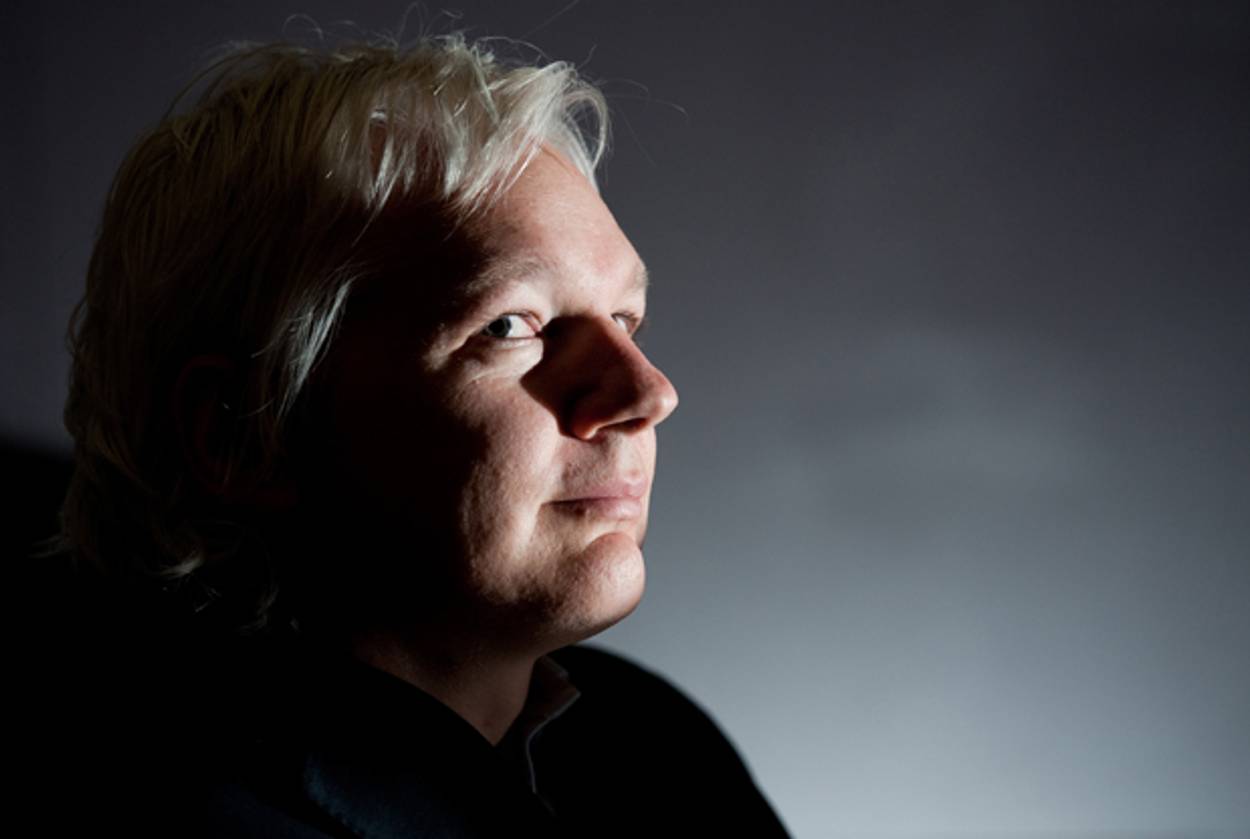Assange’s Chutzpah
According to WikiLeaks’ latest document dump, I’m a tool of the Mossad. Does the fact that I scooped Julian Assange have anything to do with it?




I’ve been a professional journalist covering security and intelligence matters for a quarter of a century. But I woke up Monday morning to find out that I had suddenly turned into an “information mule.”
This unusual explanation of my career appeared in a press release sent Sunday night by WikiLeaks, the international anti-privacy organization that has leaked thousands upon thousands of U.S. diplomatic memos. WikiLeaks, the release announced, had come into possession of millions of emails over a period of seven years from Stratfor, a private corporation based in Texas, which, according to its website, provides “geopolitical analysis of international affairs, including what’s happening, why it’s happening, and what will happen next” and is commonly known as a private intelligence organization. In WikiLeaks’ paranoid dialect, Stratfor “fronts as an intelligence publisher, but provides confidential intelligence services to large corporations.”
I have known Fred Burton, a senior researcher and editor at Stratfor, since he contacted me a few years ago to ask about my views regarding a book he was writing on the mysterious murder in July 1973 of Col. Joe Alon, Israel’s Air Force attaché, in Washington, D.C. A year or so later the book came out in English and Hebrew, and a colleague at the Israeli daily Haaretz and I wrote about it.
Apparently that was enough for WikiLeaks founder Julian Assange, who awaits a court decision in London to be extradited to Sweden to face rape charges. As a professional propagandist with a mind captivated by conspiracy theories, he is a master of innuendo.
Smearing me as a pawn of the Israeli government is a clumsy effort by Assange to sully my name and my reputation for petty personal revenge. WikiLeaks’ press release also characterizes me as someone who has “channeled tips to the Mossad.” It’s not the first time that I’ve been accused of being a Mossad agent, contact, facilitator, or God knows what else. I never was.
My relationship with Assange, so to speak, began a year ago. He phoned and offered me an interview. I consulted with my editors, and we agreed we wanted it. A few days later he called again, this time with all sorts of demands and preconditions. He demanded that he would be granted the right to censor the interview before publication and that I would ask no questions about references he had made about the nature of Jews. In return, he promised to provide me and my paper with new documents about Israel that had not yet been published.
We rejected his offer on the spot. Instead, my Haaretz editors told me to try to get the WikiLeaks documents from other sources. Within a few weeks I succeeded. I brought the documents to my editors on a disk that contained all the documents that were in Assange’s possession: 250,000 U.S. State Department cables, which contain nearly 30 million words. I gained access to them by practicing journalism, and without violating any laws in any countries.
In April, Haaretz published a series of more than 100 stories based on cables that had to do with Israel, Israelis, and the Middle East. In Assange’s paranoid view, this was tantamount to a conspiracy to “move WikiLeaks U.S. diplomatic cables to Israel.”
Hours before the publication of the first article in the series, after reading a preview on our website, Assange called Avi Zilberberg, the deputy editor of Haaretz, and demanded that we stop publication. He had the chutzpah to claim that the documents belonged to him and that if we published them, we would be infringing his “intellectual property.” Needless to say, the deputy editor turned down his request, but Assange bombarded Zilberberg with more phone calls, which always ended with cursing me as an S.O.B.
The stories we published drew a large readership inside and outside Israel. We also exposed some troubling remarks made by Assange that reeked of anti-Semitism and revealed his strange relationship with one Israel Shamir, an infamous anti-Semite and anti-Zionist. Haaretz and the Guardian reported that Shamir was appointed as Assange’s representative in Russia.
Because of my legitimate and professional journalistic work and that of my colleagues, I’ve now been added to the long list of Assange’s enemies. The list includes not only governments, armies, intelligence agencies, and corporations but also prestigious media outlets such as the New York Times, the Guardian and others. I am proud to be in their company.
Yossi Melman is a longtime reporter on strategic affairs, intelligence, and nuclear issues. He is writing a book about the history of the Israeli intelligence community.
Yossi Melman is a longtime reporter on strategic affairs, intelligence, and nuclear issues. He is writing a book about the history of the Israeli intelligence community.